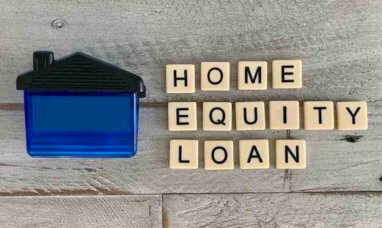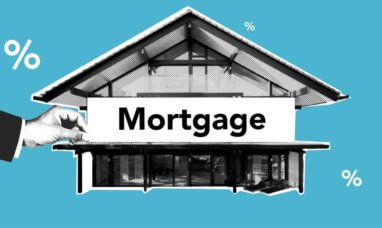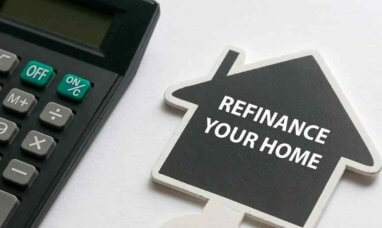Are you a homeowner looking to refinance in the near future? If so, you may be a scammer’s next target. From phone calls to emails to fake websites, scammers know exactly how to lure in unsuspecting victims.
Mortgage refinance scams are designed to steal your personal information and money. Many of these scams promise extremely low mortgage rates for a small fee. Other scams target homeowners who are struggling to make their monthly payments by offering “relief.”
It can be hard to know if the refinancing offers you receive are legitimate or not. At the end of the day, if something seems “off” or too good to be true, it probably is. Always trust your gut.
Here’s what you need to know about identifying mortgage refinance scams so that you don’t become the next victim.
Most Common Mortgage Refinance Scams
If you receive an offer for a program you didn’t apply to, or if the offer is requesting personal information, be very cautious. While it’s not uncommon to receive legitimate refinancing offers in the mail, it’s best to be wary.
Most refinance scams guarantee a low interest rate, but all of them come with a catch. You may be required to fill out a form with your personal information or pay a nominal fee before the process can get started. Other scams take things a step further by asking homeowners to sign over their home’s title in exchange for assistance.
Scammers are known to ask for all sorts of personal information, including your name, address, date of birth, and Social Security number. They can sell your personal information to other malicious organizations or use these details to steal your identity.
If you receive an offer from a company or individual that you don’t know promising a lower interest rate, this is a huge red flag. Most offers that you receive in the mail, by phone, or via email are scams.
If you believe a refinancing offer might be legitimate, research the company thoroughly before paying for services or providing your personal information. There are several other measures you can take to minimize your risk of being the victim of a scam.
How to Minimize the Risk of Getting Scammed
While there are countless mortgage refinance scams out there, there are also many ways to protect yourself. Here are some of the best ways to greatly minimize your risk of falling victim to a refinance scam.
Never Pay Upfront Fees
If you receive a mortgage refinance scam offer that guarantees “mortgage relief,” the scammers will often ask for an upfront fee. They may claim that the fee is to enable them to work with your current lender to get the refinance process started.
Scammers will also often tell homebuyers to stop paying their mortgage and to send their payments to the relief agency instead. Others ask for wire transfers or for victims to buy prepaid debit and/or gift cards.
All of these avenues are untraceable, which enables scammers to make money while continuing their malicious acts.
No legitimate refinancing agency will ask for fees upfront. In fact, paying for something before you receive it is illegal. Per the Mortgage Assistance Relief Services Rule, a company can’t collect fees until the homeowner has received and accepted an offer of relief from their lender.
So, you should never pay upfront fees for a refinance program and you should not proceed with any refinance offer that asks you to. Think of it this way: would you give someone money for a car that they promise to bring you next week?
Delete Suspicious Emails
Deceptive emails are one of the most common forms that mortgage refinance scams take. If you get an email from what appears to be a real lender, look at the sender’s email address and any URLs in the body of the email.
Scammers typically use fake emails that mimic a real lender’s email. They also use fake URLs that redirect you to a site that is used to steal your personal information.
Don’t click on any links in an email that seems suspicious. Also, avoid giving away any personal information over email. If you can’t verify the sender, call your lender and ask if the email is from them. Otherwise, mark the email as spam and delete it from your inbox.
Reach Out to Your Lender
To avoid scams, be proactive. Don’t wait for refinancing or a “mortgage relief” company to reach out to you. Instead, seek out legitimate programs on your own.
Whether you’re struggling to make monthly payments or simply want to lower your rate, the best person to contact is your mortgage lender, especially if you want to remortgage. Visit in person or find contact information on their official website to ensure that you are connecting with the intended agency.
Reaching out yourself means you don’t have to worry about responding to a fake email or phone call.
Make Note of Other Scams
As a homeowner, you’re the ideal target for scammers. Even if you aren’t looking to refinance, you can still become the victim of a malicious actor. There are plenty of mortgage closing scams as well as mortgage protection plan scams.
If something seems fishy or too good to be true, don’t bother taking it any further.
Top Avenues for Help
Looking to refinance your home because you’re at risk of foreclosure? Having trouble paying your mortgage due to a lost job or some other financial issue? If so, personalized assistance is available. The Homeownership Preservation Foundation is a non-profit organization that helps potential homebuyers and at-risk homeowners.
To learn more about debt-relief options, contact the National Foundation for Credit Counseling. You can discuss your financial issues with a certified credit counselor.
If you believe you’ve been the victim of identity theft or fraud, file a police report immediately. Your local law enforcement agency should be able to help. After filing an initial report, contact your state attorney general’s office as well as the Federal Trade Commission.
Featured Image: Twenty20








